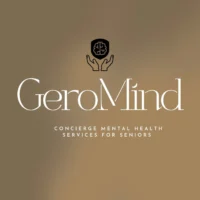Alzheimer’s disease, a devastating neurodegenerative disorder, affects millions worldwide. As the leading cause of dementia, it robs individuals of their memories, cognitive abilities, and independence. With prevalence projected to nearly double from 6.9 million to 12.7 million by 2050, the Alzheimer’s crisis demands urgent attention. This alarming trajectory, coupled with a 141% increase in Alzheimer’s deaths from 2000 to 2021 and projected costs of $1 trillion by 2050, underscores the critical importance of early detection and improved care navigation to manage the growing burden of the disease.
Understanding Alzheimer’s Disease
Alzheimer’s is characterized by progressive brain cell damage and death, leading to a gradual decline in memory and cognitive function. It’s important to note that Alzheimer’s is not synonymous with dementia; rather, dementia is an umbrella term for symptoms of cognitive decline, while Alzheimer’s is a specific brain disease that causes dementia. In fact, Alzheimer’s accounts for 60-80% of all dementia cases. The hallmarks of the disease are an abnormal buildup of amyloid plaques and tau tangles in the brain, which disrupt neuron function and connectivity. While the exact cause remains unknown, age is the greatest risk factor. Other contributing factors include genetics, lifestyle, and environmental influences. Currently, an estimated 6.9 million older adults in the United States live with Alzheimer’s, with projections reaching 12.7 million by 2050, absent significant breakthroughs.
Challenges in Alzheimer’s Diagnosis and Care
Compounding the Alzheimer’s crisis is a severe shortage of dementia specialists. Many states are projected to become “dementia neurology deserts” by 2025, with fewer than 10 neurologists per 10,000 patients. This scarcity extends to geriatricians and other specialists equipped to diagnose and manage dementia. Consequently, most cases are diagnosed by primary care physicians, who face barriers such as time constraints, lack of specialized training, and difficulty discussing the sensitive topic of dementia. Care navigation post-diagnosis is often fragmented and unstandardized, with 70% of caregivers finding care coordination stressful and 66% struggling to access resources and support. Promising pilot programs, like Medicare’s upcoming Guiding an Improved Dementia Experience model, aim to bridge these gaps by providing monthly payments for dementia care management services and access to care navigators.
The Future of Alzheimer’s Treatment
Current Alzheimer’s treatments, such as cholinesterase inhibitors and memantine, focus on managing symptoms but do not slow or stop disease progression. However, recent advancements offer hope. New therapies like Aducanumab and Lecanemab, which target and clear amyloid plaques, have shown promise in slowing cognitive decline when administered in the early stages. These treatments aim to delay symptom onset and progression by intervening earlier in the disease process. Non-pharmacological interventions, such as the MIND diet rich in brain-protective foods, have also shown potential in reducing Alzheimer’s risk. As research continues to unravel the complex mechanisms of Alzheimer’s, the goal is to develop a multi-pronged approach combining pharmacological and lifestyle interventions to prevent, slow, and ultimately cure this devastating disease.
The projected doubling of Alzheimer’s cases to 12.7 million by 2050 presents an unprecedented challenge with far-reaching impacts on individuals, families, society, and the healthcare system. Addressing this crisis requires a multi-faceted approach, with early detection and improved care navigation as key priorities. By raising awareness of early onset Alzheimer’s, promoting timely diagnosis through better training and tools, and investing in accessible, coordinated care models, we can better support the millions of patients and caregivers affected. Simultaneously, ongoing research into disease-modifying therapies and risk-reduction strategies offers hope for altering the trajectory of Alzheimer’s. As we confront this growing epidemic, let us work together with urgency and compassion to provide the best possible care for those living with Alzheimer’s today while relentlessly pursuing a future where this devastating disease is preventable, treatable, and, one day, curable.

